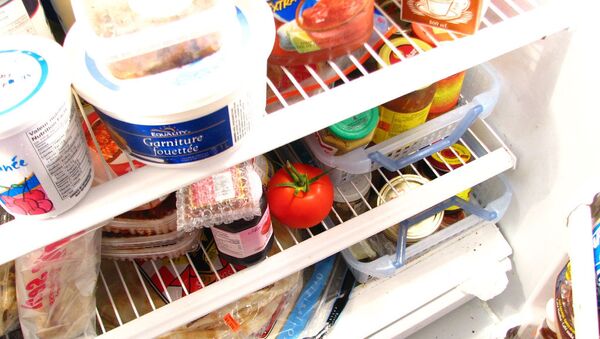Lawmakers said they were concerned that the law might prove unworkable in that Europe is split over Genetically Modified Organisms (GMOs) — branded Frankenstein Foods by anti-GMO campaigners — with some countries allowing them and others not. This would lead to border controls having to be imposed — in breach of the Schengen agreement on open borders and the fundamental principle of the freedom of movement of people and goods.
Press release: Parliament rejects national #GMO bans proposal: https://t.co/Z9LcKN8DkQ #EPlenary
— EP PressService (@EuroParlPress) October 28, 2015
However, the issue shows how divided Europe is over the sale and use of — as well as the cultivation — of GMOs. The lawmakers were voting on the sale and use of GMOs. Some countries allow them to be grown, others not.
EU Parliament rejects flawed #GMO food/feed opt-outs proposal. Big majority Commission must go back to drawing board pic.twitter.com/0cvU0nADjG
— Greens in the EP (@GreensEP) October 28, 2015
In 2010, the European Commission proposed that approvals could be speeded up if countries were allowed to make national decisions on whether to grow them or not (the "opt out" proposal). This has led to fifteen of the 28 EU member states seeking to keep GMOs out of all or part of their territory. These included Austria, Bulgaria, Croatia, Cyprus, France, Germany, Greece, Hungary, Italy, Latvia, Lithuania, the Netherlands and Poland.
Another reason for us to leave the EU ASAP. EU lawmakers block opt-out from GMO rules. https://t.co/YwZ0ZveatK
— Truth.re (@TruthSite) October 29, 2015
Bizarrely, Britain is seeking a ban for Scotland, Wales and Northern Ireland, leaving only England to willingly allow GM crop cultivation. And Belgium has opted to keep the French-speaking Wallonia region GMO-free.
Commission Back to the Drawing Board
As of September 2014, the EU had authorized 49 GMO crops, including 28 types of maizes, three GM oilseed rapes, seven GM soybeans and one GM sugar beet. However, their use is varied across Europe with some countries refusing to allow GM crops to be planted, for fear of cross-fertilization with non-GM crops.
GM crops and food can enter Europe as food, animal feed, or biofuels. GM food and feed must be approved by EU regulators and must be labeled, but meat and dairy products produced from animals fed on GM feed are not required to be labeled.
The proposal, which would amend existing EU legislation to enable member states to restrict or prohibit the use of EU-approved genetically modified food and feed on their territory, was tabled by the EU Commission.
However, the parliamentarians have now rejected that proposal being enacted. Rapporteur Giovanni La Via said:
"I believe that this proposal could have negative consequences for agriculture in the EU, which is heavily dependent on protein supplies from GMO sources. It could also have indirect negative effects on imports. Finally, there are concerns over whether this proposal could even be implemented, because there are no border controls in the EU."
European Commissioner for Health and Food safety Vytenis Andriukaitis has said that the European Commission will not withdraw the legislative proposal, which will be discussed by EU ministers.





